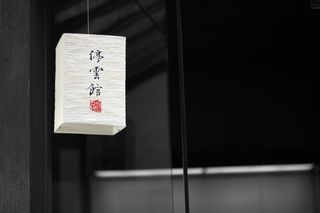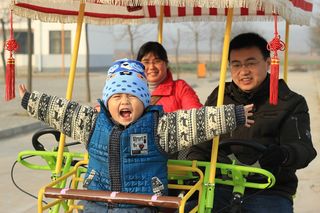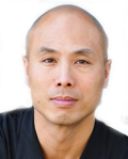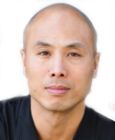My Addiction

Growing up in a traditional Chinese family here in the U.S. meant trying to navigate two very different worlds. One was a world that prized autonomy, individualism, and encouraged questioning authority while the Asian culture demanded respect, obedience, and loyalty in return for family and ethnic support.
As a Chinese-American with traditional Chinese parents from Hong Kong, I was perpetually torn when it came to issues of identity, acceptance, and unconditional love.
In my family and culture, thoughts and feelings were not openly shared. Affection and praise were considered American ways of coddling their children. As my parents struggled as immigrants in finding work and learning a new language, we (my two younger brothers and I) were left with an emotional and relational void yearning for connection and intimacy with our parents. Consequently, I grew up with a gaping hole in my heart seeking acceptance, validation, and love.
In trying to fill that need for love and acceptance not only from my parents but also from mainstream America, I developed an addictive mentality where I struggled with a number of behaviors such as gambling, video games, compulsive spending, sports/exercise, internet addiction, and hobby hopping (i.e. get intensely involved in a new hobby, feel disappointed, and move on to another hobby).
This endless quest was a desire to escape from the emotional neglect from my upbringing as we lacked emotional intimacy growing up in min my life and my family and culture.
My earliest fascination in fantasy and escapism occurred during my elementary school years as I passed the summer days away by watching endless hours of television. Part of my addictive mentality was fueled by this incessant need for validation, as I felt unloved and incompetent as an Asian-American male growing up in a mixed neighborhood that was predominantly African-American. I was not a stereotypical Asian kid who was good at math or science. But I also wasn’t “good” or had much interest in the other subjects like History or English.
Since we were in an African-American neighborhood, I remember being teased and mocked by them for being different with names such as, “Chink”, “Jap”, and “Bruce Lee”. There was even a time when my two Black friends beat me up on the way to track practice only to stop when a police officer drove by and saw me crying.
In time, as I got older I became addicted to relationships with women. The "high" of the chase was what drove me. But being in a relationship was much harder as the fear of abandonment become too intense, I often bailed before giving the relationship a chance.
Eventually this lack of emotional connection caught up with me when I married my first wife. People would remark how we looked so good together as we shared the same sense of humor and came from Asian families that valued marriage and togetherness. But by this time, my inability to show my real self to her led to our divorce.
The feelings of loss, abandonment, and shame associated with my divorce were excruciating. Nothing was more important to me than maintaining an image of perfection in the Asian and Christian community—not my career, not my family, not my relationship with God. Nothing was more important than my desire to uphold the Asian honor of a good marriage.
As a member of an Asian American Christian congregation, the cultural shame I felt over my divorce was compounded by religious shame. Disillusionment with my faith quickly set in. I felt like a failure in the eyes of my immediate family, my grandparents, my deceased ancestors, my church, and the Asian community at large. The stigma within my Asian culture of divorce pierced my soul. How had this happened? How could I be so weak? God must hate me.
My Recovery

Growing up in an immigrant Chinese household, the cultural values of harmony, collectivism, and family were embedded in our way of living. Emotionally, we were not encouraged to show any weakness. During my childhood I never had a conversation with my parents where I expressed feelings of anxiety, confusion, anger, disappointment, or hurt. Without permission to show emotions, I learned to bury such feelings.
In psychological circles we call this a “false self,” because the reality and vitality of life is cut off from the person who refuses to acknowledge any feelings or thoughts deemed unacceptable to them or their culture. For me, this false self was a defense and construct needed to protect my ego as I strove to earn approval and acceptance.
My recovery started with confronting this false self and tearing it down. It began when my Asian-American pastor at the church I was attending recommended therapy for me. Without his suggestion, I would not have gone but because he was an authority figure in the community and someone who modeled what he preached (he would openly share about couples counseling in the pulpit), I did the unenviable and went against the cultural norm to seek help for myself even at the risk of dishonoring my family name.
The individual sessions lifted the veil of emotional superficiality that guided my life. I learned to be real with my emotions by finally acknowledging the hurt I had experienced. I now often joke that I had to pay a therapist to teach me how to cry.
While individual sessions addressed some of my family trauma and cultural neglect, it was within the context of group therapy where I would say my recovery made significant strides.
Initially though, never did I feel so much shame (i.e. by acknowledging my problems in a group), but in the end never did I receive so much healing. The freedom to finally meet other men whom I could connect deeply with regarding my hurts, heartaches, and cultural pain was liberating. It was also a period of hope as I saw other men could be honest with their hurts and struggles.
With the help of those men, I was able to shift my need from relational validation to one where I find validation through God and my own belief that I am lovable just for being me.
During this process, I also saw a new me emerge. Not only one with thoughts and feelings but also one with a new purpose in life. Journalism did not hold the same intrigue for me as finding a means to help other people through this journey. After more than a dozen years in journalism, I switched careers with an eye towards helping Asian-American clients with cultural issues and clients struggling in addictions.
So as I write this, I can say with pride that I am living the life God intended for me. Not only one out of the cycle of addiction which drowned out my ability to connect deeply with others, but also one where I can connect with all aspects of myself which was cut off due to my addiction.
I can feel my fears, anxieties, and pains much more acutely. It’s not easy to find other ways to cope but I’m also experiencing freedom from the soul-numbing need to seek solace by myself. Instead, I have found support in my family, Asian church community, and dear friends who have walked with me through the years.




